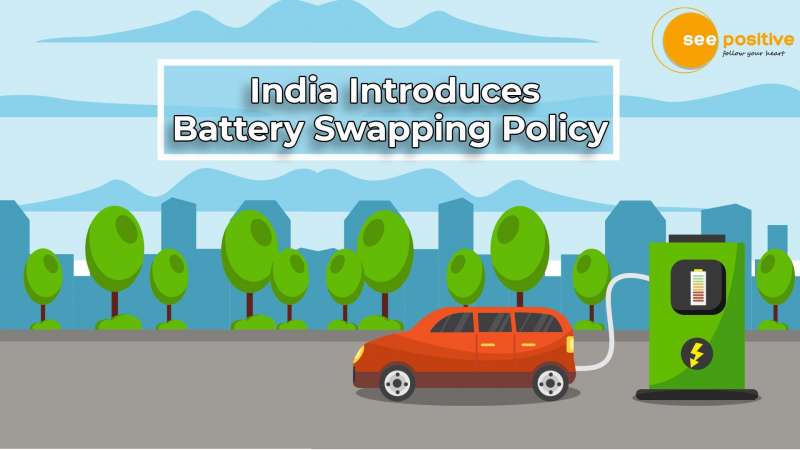

Highlights-
- Battery swapping Policy will be soon introduced in India.
- It will promote the use of EVs in the country.
- Potential to push EV adoption in the public fleet.
Amid a broader push by the government to meet its decarbonization goals, India to soon introduce battery swapping Policy to promote the use of EVs in the country. While presenting the Union Budget for the year 2022-23, the Finance Minister, Nirmala Sitharaman announced, in addition to creating interoperability standards for EV batteries, it will introduce a battery swapping policy. The policy is introduced to make electric vehicles more viable and lowering range anxiety among potential purchasers. It was a part of Union Budget 2022-23. Sunrise potential, energy transformation, and climate action were all highlighted in the Budget.
Benefits of policy
EV owners will be able to switch their exhausted batteries for charged ones at specified locations with a battery swapping policy. This eases the use of such vehicles, which usually take hours to recharge.
Potential to push EV adoption in public fleet
The policy, according to industry stakeholders, will aid in the development of the infrastructure needed to mainstream EVs and increase their use-cases, particularly in the public transportation and goods delivery segments.
The private Sector will be encouraged
“Given the scarcity of space in urban areas for establishing large-scale charging stations, a battery swapping policy and interoperability standards will be developed.” The private sector will be encouraged to create long-term, innovative business models for ‘Battery or Energy as a Service.’ “This will improve efficiency in the EV ecosystem,” Finance Minister NirmalaSitharaman said in her Union Budget 2022-23 speech.
Mass shift to electric vehicles
The decision to issue a policy on battery swapping is simply an extension of the government’s proposal for e-buses to swap drained batteries for fully charged ones at depots across major metros as part of its ambitious plan to transition to electric vehicles by 2030.


